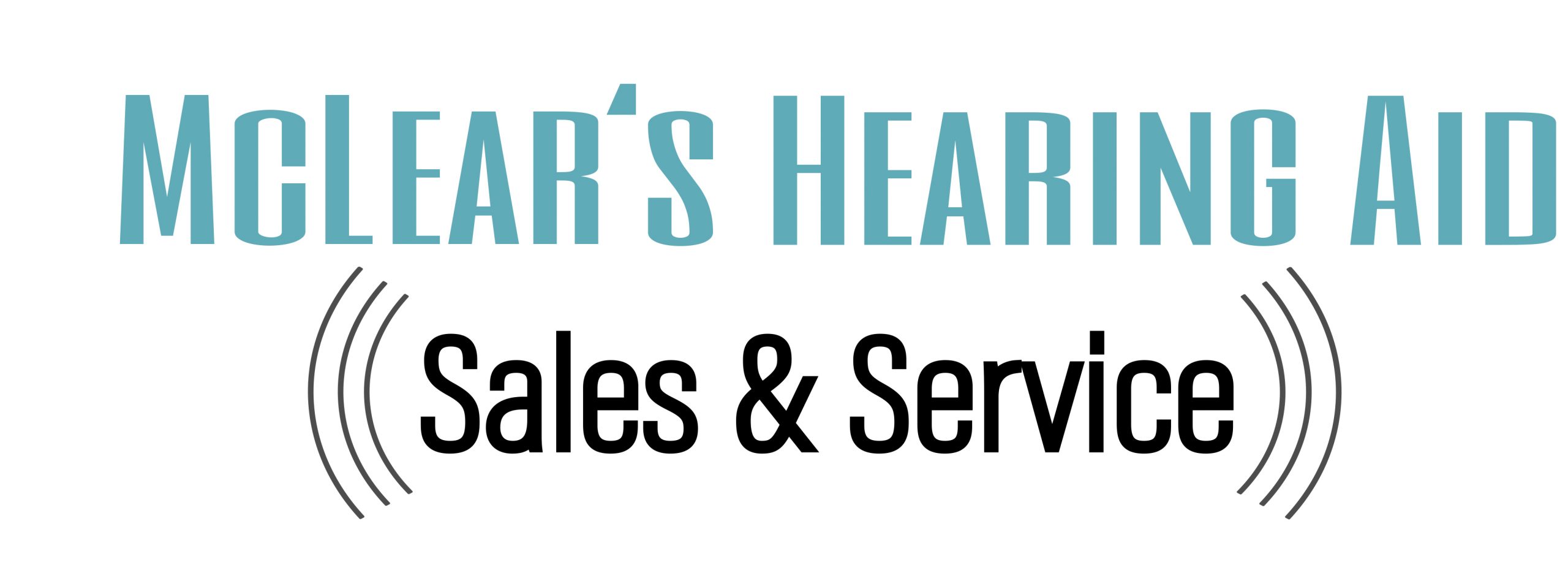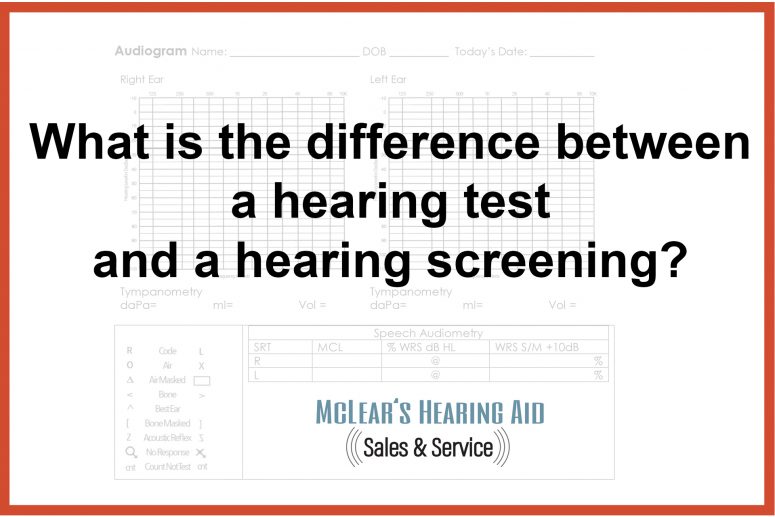What is the difference between a hearing test and a hearing screening?
Hearing Screenings
At McLear's Hearing Aid Sales & Service you will go through a hearing screening by a licensed Hearing Instrument Specialist (HIS). In simple terms, a hearing screening is a quick evaluation to see how well you hear different sounds.
A hearing screening is done in a sound-proof booth so that no outside sounds can interfere with the screening. It lasts about 20 minutes and is painless and non-invasive. You will be given a set of earphones that are connected to a machine that delivers tones and different sounds of speech to your ears, one ear at a time. Your hearing instrument specialist will ask you to signal in some way when you hear a sound or a pitch. This may be raising your hand or tapping a button. Some of you may remember having this done in school.
Your results are recorded on an audiogram, which is a graph that shows hearing sensitivity. Your HIS will go over these results and you will get a copy to take with you. You either pass or fail a screening. If you pass, it is likely you do not need to do anything else. If you fail, hearing aids and/or hearing testing may be recommended.
Disclaimer: A hearing screening is intended for the sole purpose of fitting or selecting a hearing aid and is not a medical examination or audiological evaluation
Learn more about what happens at your hearing screening.>>
Hearing Tests
If you fail a screening and either hearing aids do not improve your hearing or you choose not to use hearing instruments, further testing is recommended.
Hearing testing is commonly done by an audiologist who is a licensed hearing healthcare professional, often a doctor, who specializes in the diagnosis and treatment of hearing loss and balance disorders.
Some of these tests may include:
- Acoustic reflex: test that checks how a tiny muscle in the ear reacts to sound.
- Auditory Brainstem Response (ABR) or Brainstem Auditory Evoked Response (BAER): tests the brain’s response to sound.
- Otoacoustic Emissions (OAE): tests the inner ear response to sound.
- Behavioral Audiometry Evaluation: tests how a person responds to sound overall.
So while the terms are often used interchangeably, there is a significant difference between hearing screenings and hearing tests. Either way, make sure you schedule a hearing healthcare check-up annually just like you schedule your dental cleanings and your wellness checks with your primary care physician. Proper hearing healthcare is essential to your quality of life!

